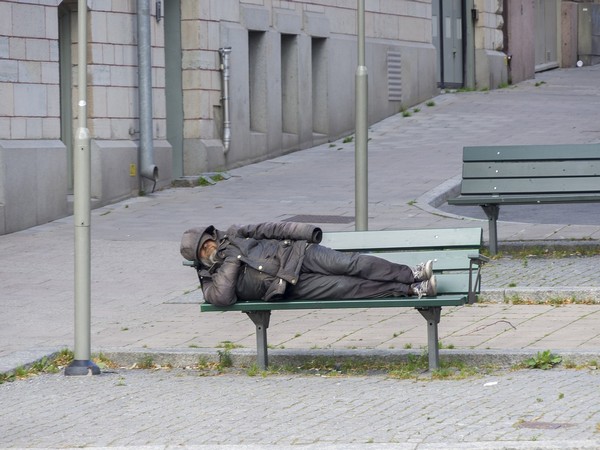Buenos Aires homeless stuck on the streets during coronavirus lockdown

- Country:
- Argentina
The Argentine government has ordered people to stay at home until mid-April, but thousands have literally nowhere to go for the "home" is the street. The homeless are among the very few seen on the streets of the capital Buenos Aires since President Alberto Fernandez issued a mandatory confinement order on March 20, and since extending beyond it an initial two weeks.
They sleep in squares and in the doorways of bank buildings and now-shuttered stores in the city's swanky center. They say municipality shelters are overcrowded and some have decried police violence, saying they have at times been forcibly removed from spots they have lived on for years. A year ago, Richard Marcelo set up an improvised shelter on the street near the landmark Obelisk monument on the city's broad July 9 avenue.
"We are trying to cope with it as best we can," said the Uruguayan, 46, surrounded by rows of cardboard and mattresses where he and his companions' sleep. But for the homeless, there are worse things than the pandemic.
"What we are afraid of is hunger, everything else including the coronavirus, no." Emilio Sebastian Barcia, 28, is the newest of the group, among the recent wave of Buenos Aires homeless. He has been on the streets only three months since losing his job as a cook. "I was desperate, I was hungry and I met this group," which has provided him with a lifeline: "Now with everything that's going on with the coronavirus if you were to leave me alone in the corner, I would die." The city authority says it has accelerated plans to transfer homeless people to temporary shelters in sports centers or hotels, which have been readied to ease pressure on normal municipal shelters during the pandemic.
Official figures showed 1,146 people were living on the streets in Buenos Aires in 2019. However, according to a count by social and political organizations, the number of homeless in the capital soared to more than 7,500 in the last few months of Argentina's crippling economic crisis.
Currently, amid Argentina's rising unemployment, over 35 percent of the population is living below the poverty line, of whom eight percent are considered destitute. "We do not want anyone to be left on the streets before the arrival of the coronavirus spike," expected in mid-April, said city ombudsman Alejandro Amor.
Amor said 700 people have already been taken off the streets, but that still leaves thousands more. But he conceded: "It is very difficult to achieve this goal." For four years, Edgardo Gabriel Villalba lived with his friends Claudio and Dani in the city's San Martin square, under the monument to Argentina's liberator.
"I was left on the street because of a disease HIV," he said. He says an avalanche of advice and slogans from the government has left him feeling lost.
"They never explained anything to us about what we have to do...the police come and run you off," said the 37-year-old, showing bruises which he said were the result of police blows. His group frequently visits the local Catholic church to get a daily plate of food. But sometimes there is not enough.
In that case "we go to the garbage bins... Yesterday we ate a cold cut that was in bad condition. It was smelly, but we hadn't eaten for days. We washed it and ate it." He knows the government is providing temporary shelters. But he is afraid of being confined with others and becoming even more vulnerable to catching COVID-19. "I survived HIV, but now I'm very afraid of the coronavirus," he said.
Maria, who didn't want to give her last name, lives in front of the Plaza de Mayo, near the Banco Santander building in front of one of Argentina's main tourist draws, the Casa Rosada presidential palace. She has lived in the spot for years, almost always seen reading. Despite finding it more difficult to find food now that the streets are deserted, she says she is happy to have all that space just for her.
"I really enjoy solitude. For me it is the most beautiful thing about the coronavirus," she said. With her two dogs and her books for company, she won't hear about going to a shelter to wait out the pandemic: "I cannot abandon my animals."
(This story has not been edited by Devdiscourse staff and is auto-generated from a syndicated feed.)
- READ MORE ON:
- Alberto Fernandez
- Argentine
- Buenos Aires
- Uruguayan










